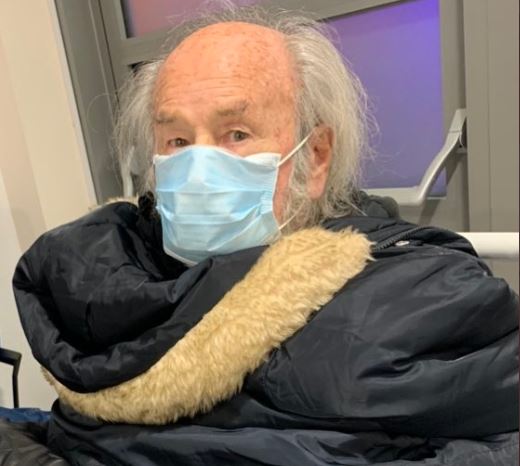‘Living nightmare’: Kidney patient, 82, forced to wait 56 hours to be seen in hospital
Exclusive: Frank Newton was taken to hospital with suspected pneumonia by his daughter after being told an ambulance would take 30 hours
An 82-year-old kidney patient was forced to wait 56 hours on a trolley to be seen in hospital as the NHS faces record pressures.
Frank Newton, who has stage four chronic kidney disease, was taken to Whiston Hospital near Liverpool by his daughter Andrea Newton on 28 December with suspected pneumonia.
The family had been told by their GP the wait for an ambulance would be 30 hours.

What followed, Ms Newton says, was a “living nightmare” as they waited for more than two days on a trolley in a holding area.
“One night I counted 19 ambulances outside the hospital, around 40 to 50 people in the corridors and maybe another 50 or more in the waiting room where it was literally standing room only,” Ms Newton said.
Have you faced similar long waits? If so email rebecca.thomas@independent.co.uk
As her father writhed in pain and became increasingly delirious, Ms Newton sought help, only to be told he was “just one of 50 patients”.
It comes an investigation by The Independent has revealed an alarming escalation of the NHS crisis in all areas of the health service.
Waits at one hospital rose to an average of 22 hours over Christmas, with doctors describing the current situation as “soul-destroying”.
New figures from NHS England released on Thursday showed 54,532 patients waited 12 hours for an A&E admission in December, a monthly rise of 44.1 per cent.

One in 10 people were left waiting for ambulances for more than three-and-a-half hours after falling seriously ill - with the likes of hearts attacks, strokes and sepsis - as response times fell to the worst on record.
The average response time in December for ambulances dealing with the most urgent incidents, such as cardiac arrests, was 10 minutes and 57 seconds, NHS England data shows.
A spokesperson for St Helens and Knowsley Teaching Hospitals NHS Trust, which runs Whiston Hospital said: “As with all other hospitals across the country, we are experiencing unprecedented demand for our emergency care services and our staff are working incredibly hard throughout the hospital to manage demand. We appreciate how difficult the current situation is and would like to thank the public for their continued support and kindness.”
Sarah Shingler, chief nursing and midwifery officer for East Kent Hospital FT which runs William Harvey Hospital said: “We are very sorry Mr Syers had to wait a long time and had to be cared for in a corridor during a period of unprecedented demand within our hospital, in part due to increased cases of covid and flu.
“Patients who are cared for in corridors are monitored regularly and treated as quickly as possible.”



Join our commenting forum
Join thought-provoking conversations, follow other Independent readers and see their replies
Comments